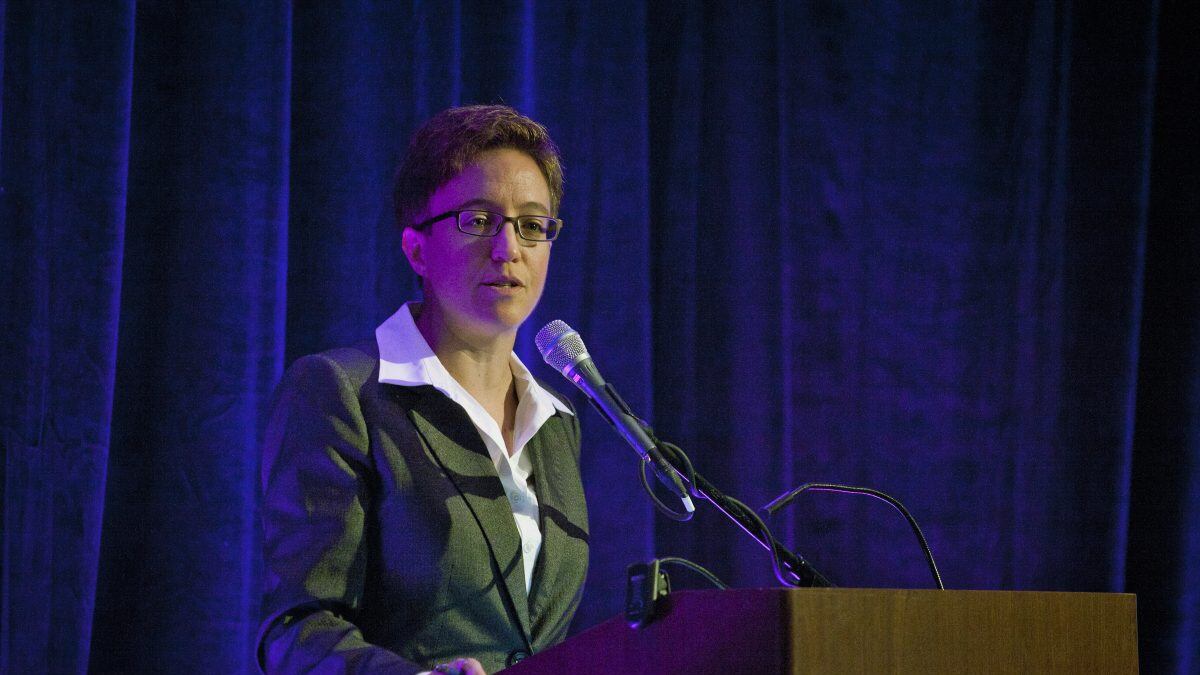Yesterday, Labor Commissioner Brad Avakian released his agency's investigation report into sexual harassment at the Oregon Legislature.
Related: Labor Commissioner Issues Damning Final Report On Sexual Harassment in Oregon Capitol
The 52-page report included lengthy quotes from a number of officials, including state Sen. Sara Gelser (D-Corvallis), whose sexual harassment complain against former state Sen. Jeff Kruse (R-Roserburg) led to Kruse's resignation and the BOLI investigation.
In the report, Gelser recounted a conversation she'd had with Kotek, in which she said Kotek told her that Gelser's allegations against Kruse were complicated by Gelser's "likeability."
"She's like, people don't like you and I was talking to a Republican today and they're like, you know, this would be a problem but [Gelser]'s just not very likeable," Gelser told BOLI.
The issue of whether female politicians are "likeable" became a major issue in Hillary Clinton's presidential campaigns, and the word is often code for denigrating behavior for which male politicians are praised or at least not criticized. When U.S. Sen. Elizabeth Warren (D-Mass.) announced her candidacy for president earlier this week, Politico drew heavy fire for immediately commenting on her "likeability."
Today, Kotek issued a statement apologizing to Gelser and, as she did yesterday, taking issue with other parts of Avakian's report.
Here's Kotek's statement:
"I want to take a moment to address yesterday's report filed by the outgoing Labor Commissioner.
I have encouraged, supported and admired people who come forward to report harassment. I have continually supported Senator Sara Gelser and Senator Elizabeth Steiner Hayward for coming forward about Senator Jeff Kruse, and I admire the courage it took to do so. Their bravery is making the Capitol a better place and led to Senator Kruse's resignation.
The Commissioner's report included Senator Gelser's recounting of a phone conversation we had in late 2017 amid the ongoing investigation into the complaint against Senator Kruse. Senator Gelser and I had a difference of opinion on the strategy of my role in the Senate process and the best way to remove Senator Kruse from office. As I was discussing our shared goal of seeing Senator Kruse resign, I shared information about what others were saying. In no way did I intend to validate those views. I deeply regret that I hurt Senator Gelser or made her feel less supported. I wish I had done a better job articulating the dynamics that I thought she needed to be aware of. Once the independent investigation concluded, I called for Senator Kruse's resignation.
As a woman leader who has been the recipient of gendered comments, I personally know how damaging that behavior can be. It's completely unacceptable, and I will keep fighting to make our workplace safe and fair for everyone. As a leader in our legislature, I have worked continually to help women be successful in the Capitol, whether elected colleagues, staff or lobbyists. I understand the pain of having your likability questioned and would never intentionally put someone in that position. Leadership is not about likeability. Our job as legislators is to serve the people of Oregon and do what it takes to improve our state.
While I vehemently disagree with a number of the conclusions in the Commissioner's report, specifically the assertion that I knowingly allowed workplace harassment to occur, I remain committed to the ongoing work to make the Capitol a model workplace free of harassment."
